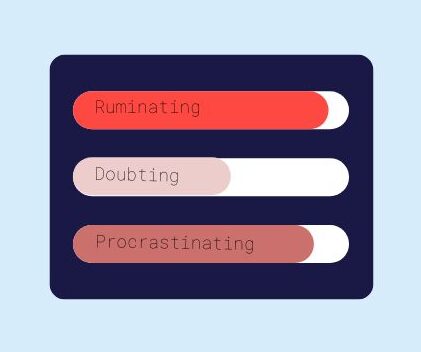
Dialectical Behavioral Therapy (DBT) is a well-established treatment for people who suffer from emotion dysregulations and impulsive behaviors. This includes people with self-harming and suicidal behaviors, substance abuse, and chronic interpersonal difficulties. And while DBT has shown efficacy for many people struggling, there is a specific group that seems to just not benefit from this form of treatment: people who suffer from maladaptive overcontrol. This type of coping style often leads to difficult to treat disorders such as chronic depression, anorexia nervosa, and obsessive-compulsive personality disorder. Luckily there is a newly developed, evidence-based treatment called Radically Open DBT (RO-DBT) to address symptoms of maladaptive overcontrol.
Maladaptive Overcontrol: what is that?
Maladaptive overcontrol is a type of coping with emotional pain that leads to social isolation, aloof and distant relationships, risk aversion, strong needs for structure, inhibited emotional expression, hyper-perfectionism, and detail orientation over general situations. This is picture of low openness, low flexibility, and social signaling deficits is thought to be the result of combined biological and environmental factors. Unfortunately, this coping style leads to limited opportunities for learning new skills or forming close social bonds. Because of this, people with maladaptive overcontrol tend to suffer from emotional loneliness and “feel anxious on the inside yet not display any overt signs of anxiety on the outside” (Lynch, p. 144).
How do I know if I have this?
The way that maladaptive overcontrol would show up is often through behaviors that at first glance appear very effective. These include high detail orientation, perfectionism or high achievement, resistance of temptation, rigid adherence to rules, and high tolerance of pain or distress. However, while these behaviors are often reinforced in a person’s environment, they result from a heightened sense of threat in social settings. This leads to a low tolerance for: making mistakes, spontaneity, displays of overt emotion, and difficulties accepting feedback from others. These folks also tend to lack the range of facial expressions that allow for non-verbal connections as they read social interactions as a threat and their faces tend to “freeze” in response to threats.
[bctt tweet=””if you are the type of person who goes above and beyond to avoid all mistakes, is constantly sensitive to perceived criticisms, bases your self-worth on performance/achievements as compared to others, and avoids novel social situations, you might have an overcontrolled coping style”” username=”BehaviorChange_”]
SO, if you are the type of person who goes above and beyond to avoid all mistakes, is constantly sensitive to perceived criticisms, bases your self-worth on performance/achievements as compared to others, and avoids novel social situations, you might have an overcontrolled coping style. Ask yourself if you struggle with making connections or trying to suppress your authentic emotions. Do you feel that people often misread your face or think of you as untrustworthy? These, too, are signs you may lack some skills in social signaling.
What can be done?
The only evidence-based treatment designed to specifically target maladaptive overcontrol is RO-DBT. RO-DBT is an outpatient treatment consisting of weekly individual sessions, weekly skills-training groups/classes, and phone coaching as needed, lasting approximately 30 weeks. While traditional DBT emphasizes behaviors that are typically overlearned or compulsively engaged in by people with maladaptive overcontrol (i.e. avoiding conflict, restrain from acting on impulses, delaying gratification, distress tolerance, increase organization), RO-DBT necessarily teaches different behaviors. RO-DBT encourages the practice of disinhibition, participation without planning, being more open to feedback, and emotional expressions.
What you can do now?
It is understandable if it is hard to seek treatment of this magnitude. It also may be hard to find RO-DBT trained therapists as this is a newly developed treatment (based on years of research). Fortunately, you can begin taking small active steps towards engaging in Radical Openness. Here are some ideas:
1. Try to let go of preconceived ideas of what should be. For example: if you are constantly upset that something was not done correctly, can you look for a possibility that another way to do the task is also correct? Celebrate the diversity of what the world has to offer that you miss out on when you think you already have the answers.
2. You can become more open to the feedback of others, even if it means letting go of your quest for perfection. When your partner tells you that they get upset every time you re-fold the laundry they just folded, can you just listen and learn from their experience despite an urge to dismiss it, deny, justify, or defend your actions? Ask yourself: is my need for the towels to be folded perfectly getting in the way of what is most effective for this relationship? Is there something here to learn?
3. Practice playing! Be silly, move your face and body in ways that are silly. Put on music and dance around, laugh out loud, flap your arms and “bock” like a chicken in your living room. Just let loose and engage in a silly moment without planning it out.
If you believe you or a family member is suffering from maladaptive overcontrol in response to painful emotions, you can always seek out professional help of a therapist familiar with RO-DBT. It takes time and effort, but these are behaviors that can be learned and practiced, helping improve social connections, live more flexibly, and foster an openness to all that life has to offer.
References
Lynch, T.R., Hempel, R.J., & Dunkley, C. (2015). Radically open-dialectical behavior therapy for disorders of over-control: Signaling matters. American Journal of Psychotherapy, 69 (2).







